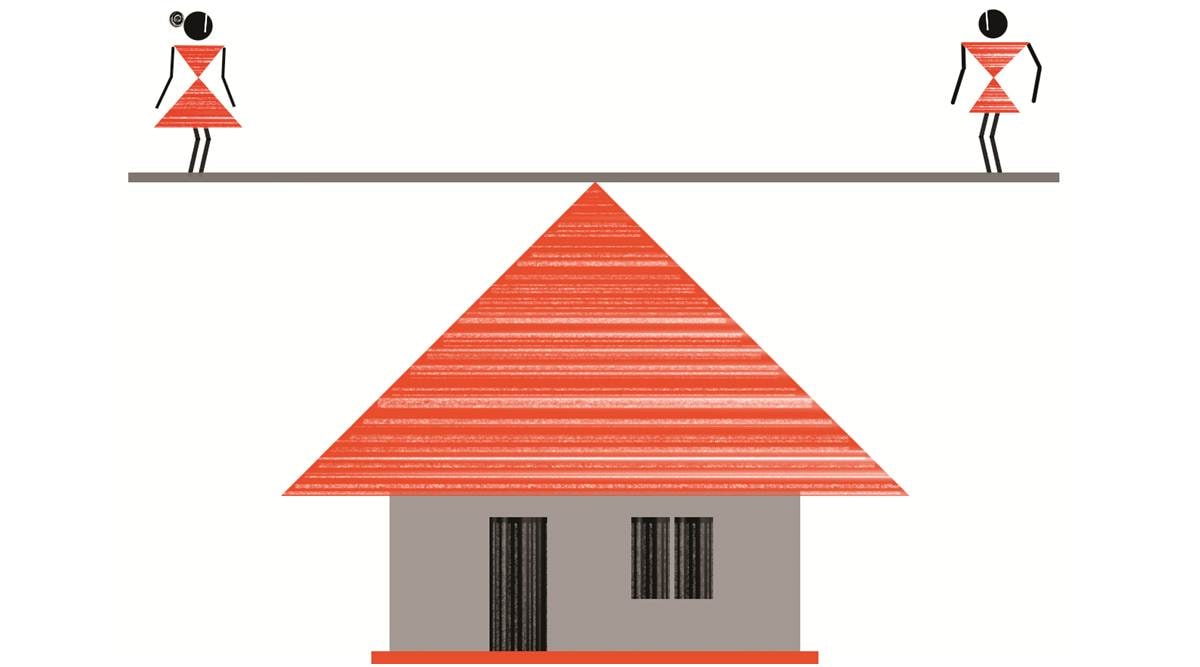Explained Ideas: Why SC’s order on coparcenary rights should be welcomed
But an overhaul of social attitudes and simplification of litigation processes will be necessary for the verdict to be implemented properly, write Hena Singh and Swati Parashar
 Outside the Supreme Court of India. (Express Photo/File)
Outside the Supreme Court of India. (Express Photo/File)In their opinion piece in The Indian Express, Hena Singh (who teaches Political Science at Miranda House in Delhi University) and Swati Parashar (Associate Professor at the School of Global Studies, Gothenburg University) write that the Supreme Court’s recent judgment — by a three-judge bench — granting coparcenary rights to women is praiseworthy. They state that it reiterates the idea that women are born as equals, and that it is the patriarchal mindset and embedded customary practices and traditions that accord them an inferior status.
“The Supreme Court has now set forth the idea that coparcenary rights are birthrights free from limitations imposed by the dates of any legal notifications,” they state. As a natural corollary, property inheritance rights apply to all women retrospectively from 1956, the year of the codification of the patriarchal practices of the Mitakshra School of Hindu law as the Hindu Succession Act.
 In a recent judgment, the Supreme Court granted coparcenary rights to women. (Illustration by C R Sasikumar)
In a recent judgment, the Supreme Court granted coparcenary rights to women. (Illustration by C R Sasikumar)
“What makes this judgment epochal is the progressive change in the attitude of the courts, which now appear to be upholding principles of substantive justice for women both in theory and practice,” they state.
Indeed, the higher judiciary in India has generally been broad-minded in dismantling patriarchal practices and institutions. “In that sense, the judicial sojourn that in a way commenced from the judgment delivered in the case of C B Muthamma (1979) or Nergesh Meerza (1981) continues to be persistent in breaking stereotypes, be it Sabarimala (2018), or granting permanent commission to women officers in the Indian Army”.
Also read | Explained Ideas: Why India needs to rethink its cities after Covid-19
But they also point out that while the delivery of the judgement is one thing, its proper implementation quite another.
On occasion, the law and courts may turn out to be progressive. “However, on no occasion can we expect the society to readily accede to progressive reforms,” they write. The challenge for economically dependent women in far-flung rural areas who are denied literacy, dignity and, sometimes, even a name and identity, in securing their rights is immense.
“In parts of Bihar we come from, there are areas where women are still addressed by their village names or more commonly as someone’s wife. Family histories have conveniently wiped out any references to women, and what their lives were like, what became of them, and how they managed to survive in the absence of support from husbands and children,” they state.
- 01
- 02
- 03
- 04
- 05






































